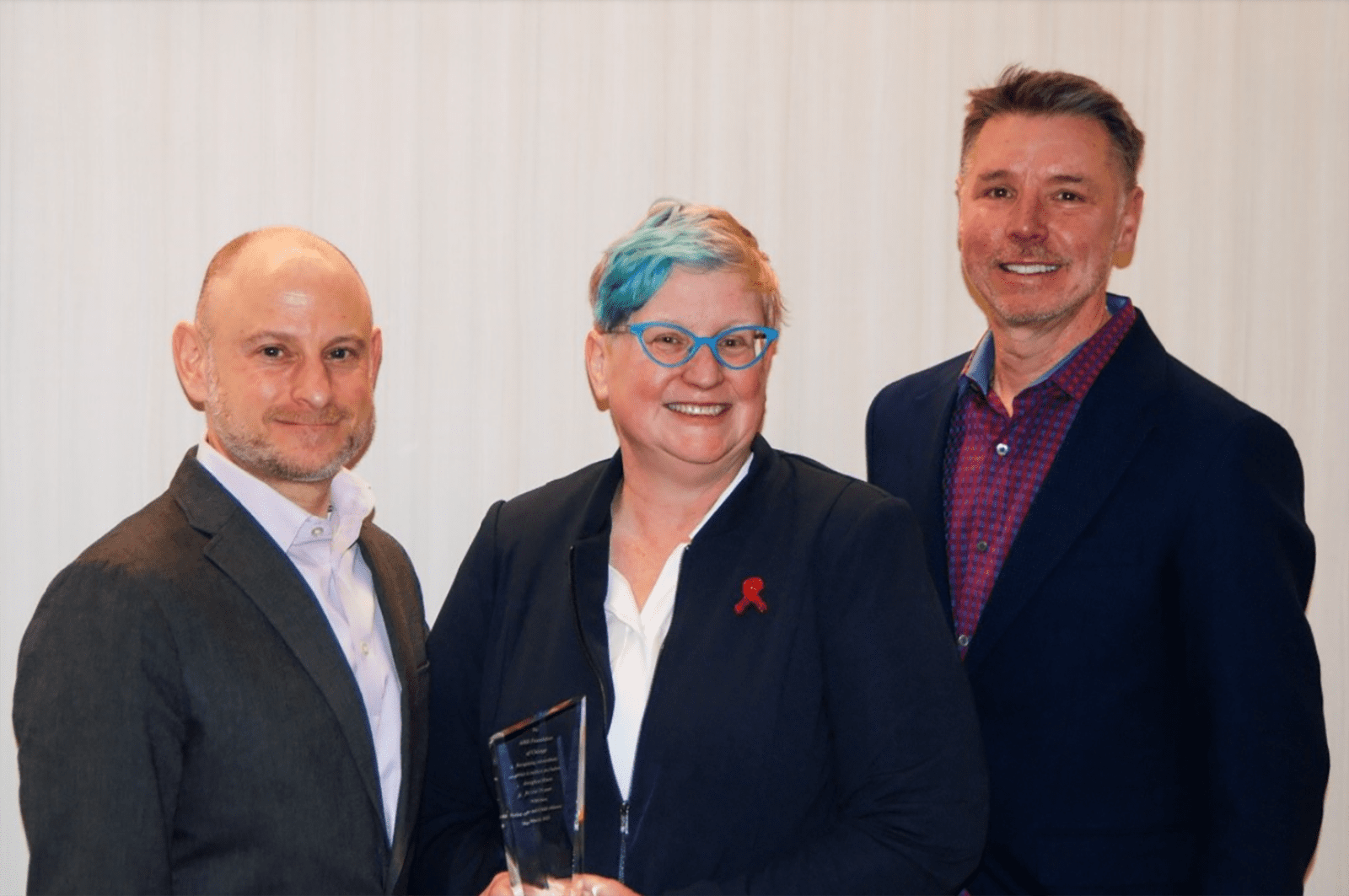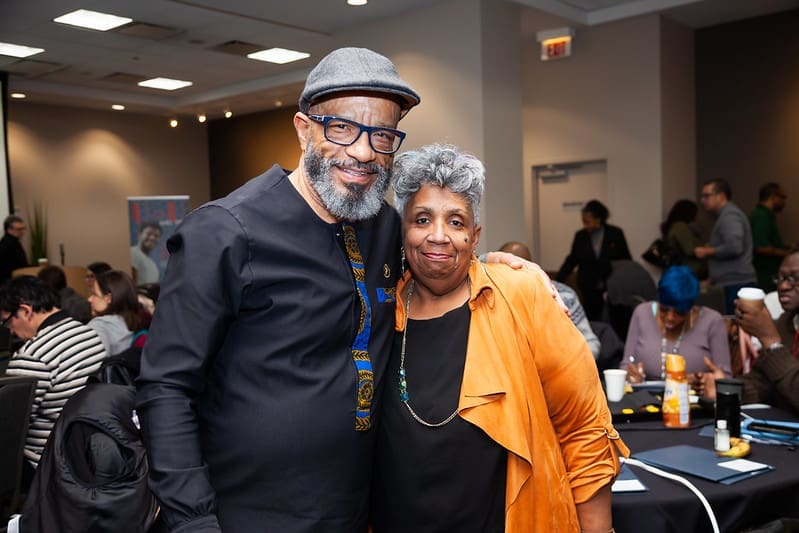 By Rosalyn Murga, AIDS Foundation of Chicago
By Rosalyn Murga, AIDS Foundation of Chicago
[UPDATED Dec. 9, 2019]
Editor’s note – A year after publishing this piece to our blog, threats to immigrant, refugee and asylum-seeker communities have not let up. Immigration is still a topic that frequents our news cycle, and misinformation about these communities persist. This holiday season (and every day!), we encourage you to speak up and engage in conversations about immigration that, as Rosalyn mentions in the article, “focus on both educating and listening.”
With the holidays fast approaching and the midterm elections over, it is imperative to engage in conscious and respectful dialogue regarding topics that divide our communities. As a Latina Chicagoan, I pride myself in having a family that migrated to the U.S. Their reasoning was to have a better future for their family without poverty. During the holidays, we take the time to reflect on the sacrifices that were made in order for us to have dinner together. We talk about our struggles and accomplishments as a Mexican-American family, but more importantly, we discuss what we are doing to improve our community. At the same time, we pray for the families that are on their way to this country with child in arms, hungry to fulfill their “American Dream.” These conversations prepare us to talk to people with different perspectives on topic of immigration.
Not all holiday dinners have the same conversations. Some families have people with conflicting perspectives. It can be difficult to enjoy a delicious meal while challenging your family member’s stance on a topic. Currently, we are surrounded by a disruptive rhetoric perpetuated by our country’s leader. If you want to fight back, focus on changing hearts and minds. Engage in a conversation that focuses on both educating and listening to the opposing party. By doing so, you may shift opinions and gain an ally. If you expect to have these kinds of conversations at your holiday dinner, here are some tips to keep in mind specifically when talking about the country’s stance on immigration.
Immigrants, refugees, asylum-seekers are people.
They are parents, friends, community members, neighbors, co-workers and working professionals. People come to this country in search of a better life. These individuals are fleeing poverty, extreme violence, persecution, and/or war in order to obtain the American Dream, which is to be free. It is important to avoid stereotypes by humanizing the situation. Why should we humanize these situations? Because the individuals who are involved are human. Moreover, by drawing parallels between each other, we reduce the gap of understanding between opposing perspectives. It’ll be easier to empathize with one another’s experiences.
Do not limit your questioning.
Do not only ask “Why do you feel that way?”, but also ask, “How did you develop those feelings? What happened that caused you to build anger towards people in that situation?” Ask open-ended questions that allow your family members to express themselves. By asking these questions, it’ll allow that person to stop and reflect on what is the underlining reason for their stance. It’ll also help you better understand some of the underlying concerns or biases they might have, and to talk through those beliefs as well.
“They come here to get on welfare.”
Although in some cases, some people can be eligible for public assistance — health coverage through Medicaid, food stamps, and Supplemental Security Income (SSI) to name a few — most immigrants/refugees/asylees are not fully eligible for these programs. And often, there is a waiting period from the date they entered the country to the date they can access life-saving programs. Each case can vary in the total amount of years that one must wait before even being found eligible to access these services. Some people that do not have documents to be in the country are automatically disqualified from most, if not all, public safety-net services.
But there’s more: Today, the Trump administration is trying to change policies to make it more difficult for people to access public services. In addition to Trump’s desire to alter the 14th amendment (which allows children born in the U.S. to automatically become citizens), has proposed changes to the so-called “public charge” rule. As defined by the National Immigration Law Center, it is “a term used by U.S. immigration officials to refer to a person who is considered primarily dependent on the government for subsistence.” Currently, there is a limited set of criteria that might determine that someone is a public charge, but the Trump administration is trying to expand those rules to make it harder for people to change their legal status in the U.S. This policy will force our families, friends, and neighbors to choose between seeking basic resources to live or go back to a country with their family at risk of certain death. In both scenarios, they have to live a life of fear. Which one would you choose?
We are a nation of immigrants. The U.S. is a celebrated melting pot of cultures. We are the “the land of opportunities,” a nickname that re-enforces the idea that anybody can attain “the American dream.” When the leader of this land takes every opportunity to prevent someone from obtaining basic human rights, it weakens our foundation as a country. We all lose. We must talk about the U.S.’ history of exclusion towards people of color and the punishment of newcomers. By recognizing these patterns in our history, we can shine light onto these communities that have and are still are being deeply impacted. The goal is to talk about how their resilience can promote more inclusive and just policies in order to avoid history repeating itself.
More resources for talking about sensitive immigration topics:
National Immigration Law Center – Public Charge
7 tips to change the conversation on immigration
Immigrants and Welfare Use – Migration Policy Institute


